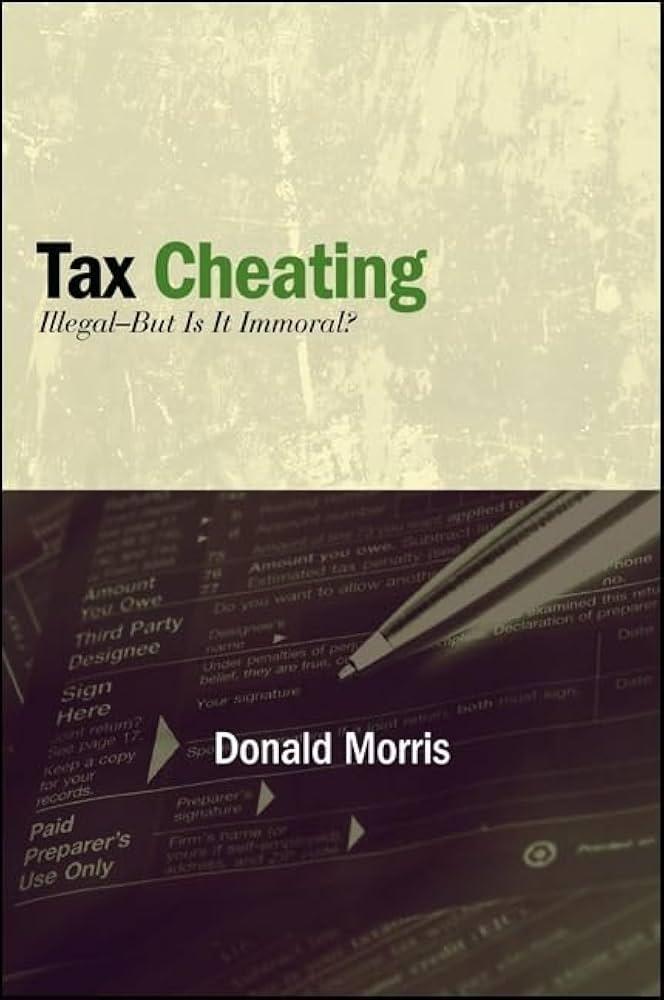Illegal Taxes Are Everywhere—Learn How to Fight Back.

Illegal Taxes Are Everywhere—Learn How to Fight Back
Taxation can often feel like a minefield, with various types of taxes levied at local, state, and federal levels. However, not all taxes you encounter are legally justified. In fact, many individuals unknowingly pay illegal or improperly assessed taxes. This article delves into the prevalent issue of illegal taxes, how to identify them, and actionable steps you can take to fight back.
Understanding Illegal Taxes
Illegal taxes refer to taxes that are charged without the proper legal framework. These may include improperly assessed property taxes, unauthorized fees imposed by local governments, or nonexistent tax laws being enforced. Understanding what constitutes illegal tax practices is crucial for every taxpayer.
Common Types of Illegal Taxes
- Excessive property Taxes: Sometimes, property tax assessments don’t accurately reflect a property's value.
- Unlawful Excise taxes: certain localities impose excise taxes without proper authorization.
- Improper Sales Taxes: Charging sales tax on non-taxable items can also be considered illegal.
- Fake Government Fees: Be wary of fees that are not sanctioned by law; these can frequently enough be illegal taxes.
Why You Should Care about Illegal Taxes
Understanding illegal taxes is essential because:
- They can drain your financial resources.
- They may contribute to larger systemic issues in taxation fairness.
- Knowing your rights allows you to challenge unjust practices effectively.
How to Identify Illegal Taxes
The first step in tackling illegal taxes is to become aware of what you might be paying. Here’s how to spot potential illegal taxes:
signs of Possibly Illegal Taxes
- Inconsistent Tax Rates: Unexplained variations in local tax rates.
- Lack of Transparency: If you cannot find supporting documentation for a tax,question its legitimacy.
- Pressuring Tactics: Unofficial threats of penalties should raise red flags.
- Unexpected Fees: Sudden fees outside the usual tax assessments might not be legal.
Practical Tips to Fight Back Against Illegal Taxes
Here are some actionable steps to help you fight back against illegal taxation:
1. Gather Evidence
Document all interactions with tax authorities. This includes receipts, notices, and formal communications. Having a thorough record will bolster your case.
2. Research Tax laws
Understanding local, state, and federal tax laws can provide you with the leverage needed to contest illegal taxes. Utilize reputable sources such as government websites and tax-related organizations.
3. File a Written Complaint
Once you have your evidence, you can file a complaint with the appropriate tax authority. Be clear and concise about your concerns and provide all supporting documentation.
4. Seek Legal Assistance
If your complaints go unresolved, consider consulting a tax attorney. These professionals specialize in tax law and can guide you through complex processes.
5. Engage in Public Forums
Joining community groups or online forums can help connect you with others facing similar issues. Shared experiences provide support and sometimes valuable advice.
Case Studies: Accomplished Battles Against illegal Taxes
Real-life examples can shed light on how individuals and groups have successfully contested illegal taxes. Here are notable cases:
| Case Study | Description | Outcome |
|---|---|---|
| John Doe vs. Town Council | Disputed a property tax assessment that exceeded market value. | tax reassessment granted, leading to lower payments. |
| Local Business Owner | Challenged illegal sales tax on non-taxable items. | Refund issued for overpaid sales tax. |
| Community Association | Opposed unauthorized local excise taxes through a public campaign. | Tax repealed after public outcry. |
How to Protect Yourself from Future Illegal Taxes
Vigilance is key. Here are some proactive measures to lower your risk of encountering illegal taxes in the future:
- Stay Informed: Regularly check updates on tax laws affecting your area.
- Maintain Organized Records: Keep a consistent filing system for tax documents.
- Join Tax Awareness Groups: Engage with local organizations focused on tax fairness.
First-Hand Experience: A Personal Journey
Many taxpayers have faced challenges with illegal taxes. frequently enough,these experiences can be both enlightening and empowering.
For instance, Emily R., a resident of Ohio, discovered she was charged local taxes that were not sanctioned by any ordinance. After conducting her research and reaching out to local taxpayer groups, she managed to file a complaint.With consistent follow-ups, the local authorities eventually issued a refund and corrected future assessments. Emily’s persistence highlights the power of knowledge and community action.
conclusion
Illegal taxes can be insidious, affecting individuals and communities alike.Though, armed with the right knowledge and tools, you can effectively challenge and combat these unfair taxation practices. Stay vigilant, educate yourself, and don't hesitate to take action against what you know is unjust.





Responses